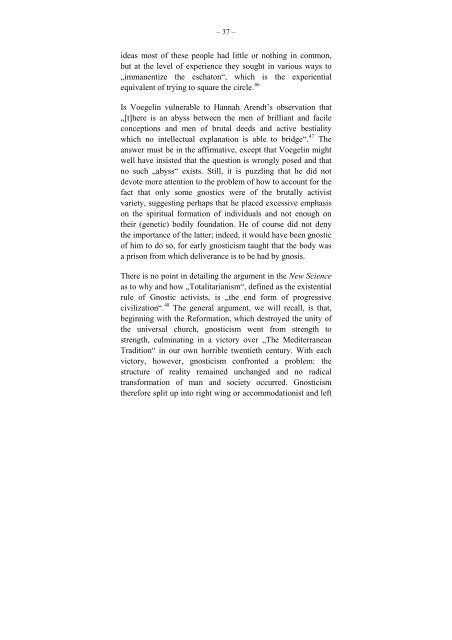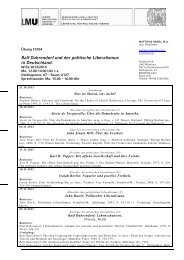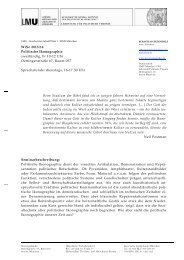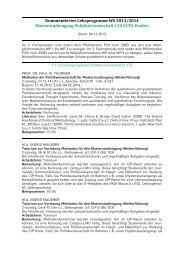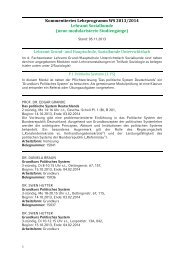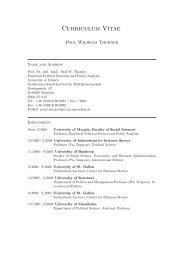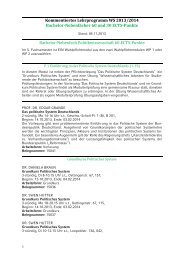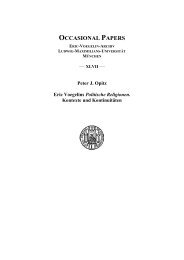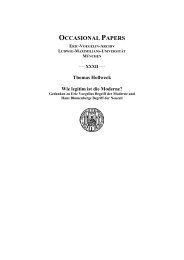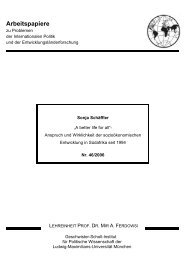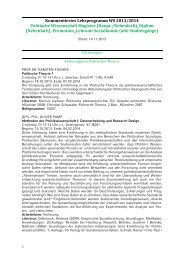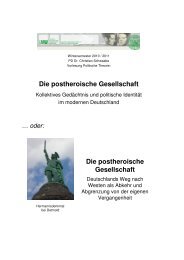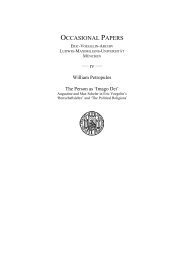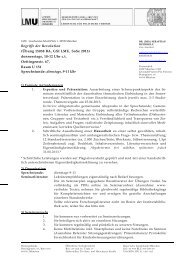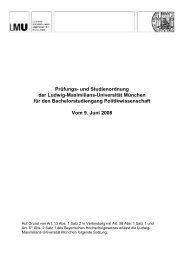Eric Voegelin.pdf - Geschwister-Scholl-Institut für Politikwissenschaft
Eric Voegelin.pdf - Geschwister-Scholl-Institut für Politikwissenschaft
Eric Voegelin.pdf - Geschwister-Scholl-Institut für Politikwissenschaft
You also want an ePaper? Increase the reach of your titles
YUMPU automatically turns print PDFs into web optimized ePapers that Google loves.
– 37 –<br />
ideas most of these people had little or nothing in common,<br />
but at the level of experience they sought in various ways to<br />
„immanentize the eschaton“, which is the experiential<br />
equivalent of trying to square the circle. 46<br />
Is <strong>Voegelin</strong> vulnerable to Hannah Arendt’s observation that<br />
„[t]here is an abyss between the men of brilliant and facile<br />
conceptions and men of brutal deeds and active bestiality<br />
which no intellectual explanation is able to bridge“. 47 The<br />
answer must be in the affirmative, except that <strong>Voegelin</strong> might<br />
well have insisted that the question is wrongly posed and that<br />
no such „abyss“ exists. Still, it is puzzling that he did not<br />
devote more attention to the problem of how to account for the<br />
fact that only some gnostics were of the brutally activist<br />
variety, suggesting perhaps that he placed excessive emphasis<br />
on the spiritual formation of individuals and not enough on<br />
their (genetic) bodily foundation. He of course did not deny<br />
the importance of the latter; indeed, it would have been gnostic<br />
of him to do so, for early gnosticism taught that the body was<br />
a prison from which deliverance is to be had by gnosis.<br />
There is no point in detailing the argument in the New Science<br />
as to why and how „Totalitarianism“, defined as the existential<br />
rule of Gnostic activists, is „the end form of progressive<br />
civilization“. 48 The general argument, we will recall, is that,<br />
beginning with the Reformation, which destroyed the unity of<br />
the universal church, gnosticism went from strength to<br />
strength, culminating in a victory over „The Mediterranean<br />
Tradition“ in our own horrible twentieth century. With each<br />
victory, however, gnosticism confronted a problem: the<br />
structure of reality remained unchanged and no radical<br />
transformation of man and society occurred. Gnosticism<br />
therefore split up into right wing or accommodationist and left


